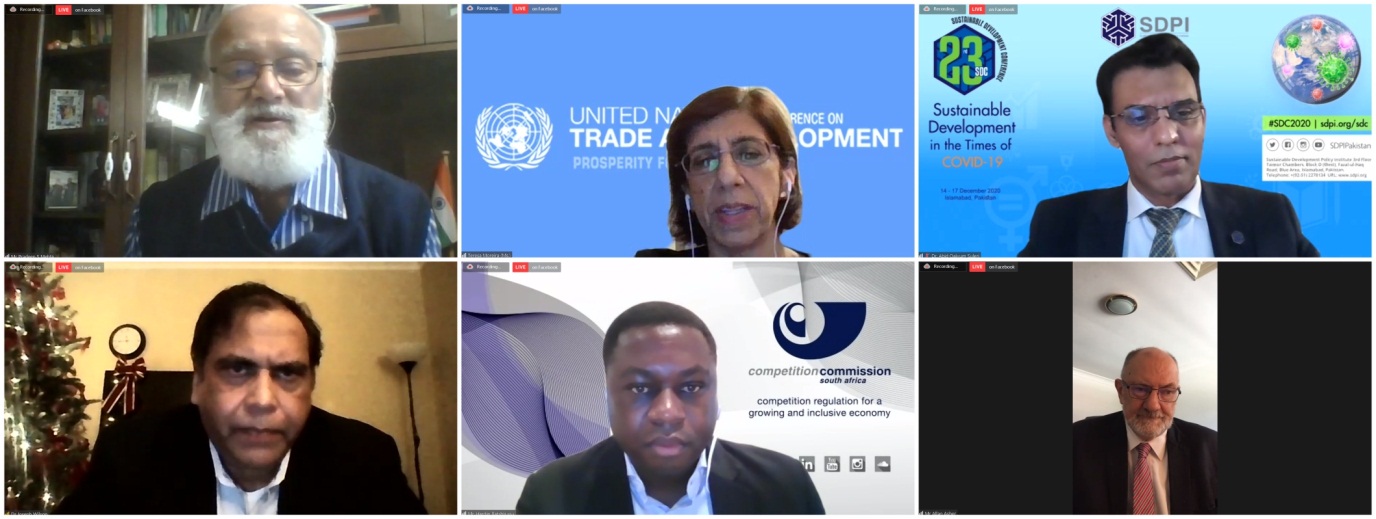December 16, 2020
“Concerned with the rejection of the India and South Africa’s proposal on waiver of IPRs on Covid19 vaccine in the recent WTO TRIPs council meeting, the global civil society should take lead in pressing for a second version of the Doha Declaration on TRIPs and Public Health in order to deal with the emergency,” said Pradeep S Mehta of CUTS International during a Webinar on Access to Healthcare and Competition.

The WTO Doha Declaration on TRIPs and Public Health, 2001 was drafted and successfully advocated by the civil society to allow access to low cost AIDS drugs. Covind-19 too is another public health issue and therefore there is an imperative to allow affordable access to vaccines, and curative medicines and devices to cope with the pandemic.
Other speakers at the webinar, such as Mr. Hardino Ratshasisu of the South African Competition Commission and Ms. Teresa Moreira of the UNCTAD also pointed out that good healthcare is a part of Goal-3 of the Sustainable Development Goals, 2030 agreed to by the international community. Thus all stakeholders must converge on achieving the same with the least hurdles and lowest cost.
Furthermore, Ms Moreira also said that UNCTAD is providing technical assistance to young competition authorities of the developing world and the Toolkit prepared by CUTS can be useful to them also. In the context of IPRs etc, which are barriers to affordable healthcare, the issues can be discussed with the World Intellectual Property Organisation at Geneva.
Mr Mehta was moderating the webinar, which was part of the ongoing flagship annual Sustainable Development Conference of the Sustainable Development Policy Institute (SDPI), Islamabad.
Abid Suleri, Executive Director of SDPI welcomed all and noted that by being virtual this year’s conference is very rich as there are speakers from all over the world. In this session, there are experts from Canada at one end and Australia at the other end, other than South Africa and UNCTAD, Geneva, and from Pakistan and India.
In the rich discussions, Allan Asher of FEMAG, Australia pointed out that incorporating ‘TRIPs Flexibilities’ may not be effective in the present day world with plethora of ‘TRIPs-Plus’ bilateral trade agreements, which can hinder access to the relevant know-how at affordable costs.
There is pressing ‘public interest’ justification in these difficult times to have a relook at the intellectual property rights regimes to achieve the Sustainable Development Goals, which include, but is not limited to, healthcare.
The panel also discussed about various other anti-competitive practices prevailing in the health and pharmaceutical sectors, which include ‘pay for delay’, excessive pricing, evergreening, horizontal and vertical restraints, entry barriers etc. These have been described in detail in the Toolkit on Healthcare and Competition prepared by CUTS International and CUTS Institute for Regulation & Competition, New Delhi.
Joseph Wilson, former Chairman, Competition Commission of Pakistan inter alia made a very relevant point that the Right to Healthcare has been interpreted by courts under the Right to Life & Liberty guaranteed as a fundamental right of most constitutions in the world. “Therefore, we need to evaluate all legal barriers to the achievement of this right”.
Mr Suleri thanked all panellists and welcomed them for a physical meeting at the next year’s SDC, by which times one expects the world to be normal.
For further details, please feel free to contact:
Ujjwal Kumar at ujk@cuts.org or +919199030799
